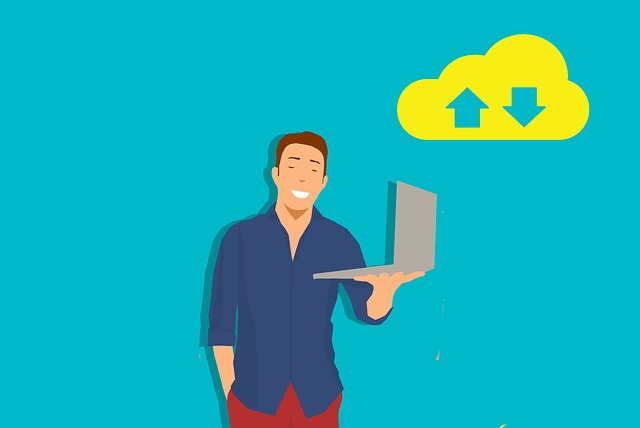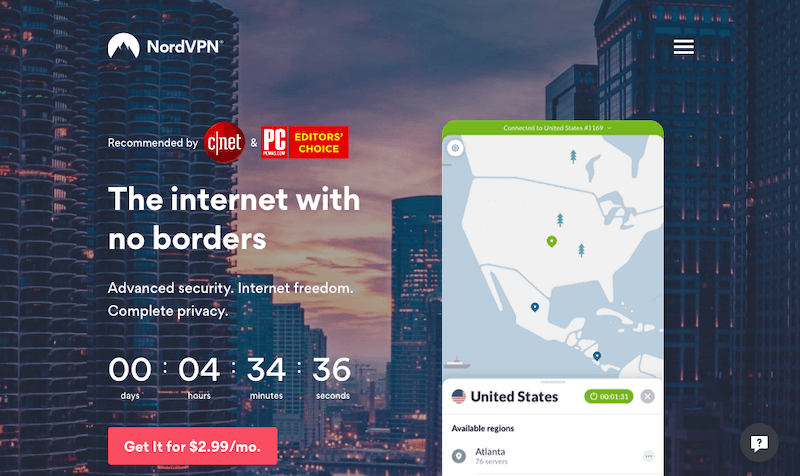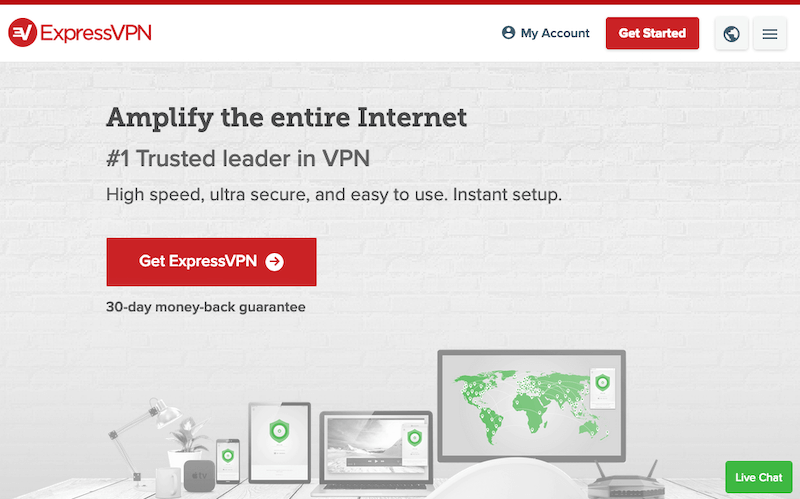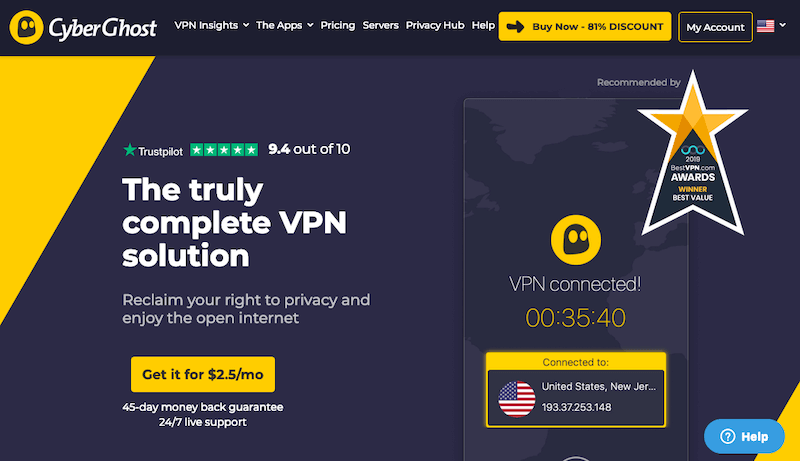It is quite common to hear VPN services boasting of torrenting or P2P file sharing on the service. It has become one of the selling factors for VPN providers.
The reason being that torrenting is facing a lot of hostility from governments and media agencies across the world.
Throttling is also a common practice exercised by Internet Service Providers to prevent a user from downloading files using the medium of P2P file sharing.
A lot of the countries have banned various torrenting clients from their cyberspace. These measures have been taken after a lot of efforts made by the media houses across the globe to take down torrenting.
VPNs turn out to be the best way to counter the attempts made by governments, ISPs, and media houses to stop people from using torrent to download content.
However, it is also necessary to understand the reason behind the increased popularity of torrent services, and the reason why media agencies and governments want to wipe away torrenting from the internet.
Get to know torrenting
We all know how traditional downloads work. There is a server in some part of the world which contains the file you intend to download.
When a person presses the download button, a copy of the file is sent to the downloader. The whole of the file is downloaded in one go without any break.
In such cases, it is easy to map the server as well as the downloader. The IP addresses of the sender, as well as the receiver, are known to the ISPs and other bodies in this case.

VPNs can easily mask the IP address of the user. IP address represents the user on the internet in a way, and it is impossible for the service and the service providers to know that it is you who is generating the requests.
It is because of this reason that VPNs make it almost impossible to keep a track of the user’s online activities. We will discuss how a VPN service achieves this in the later sections.
The downloading speed also remains constant throughout the process. It depends upon the capability of the internet connections of the sender as well as the receiver.
Let us now try to understand how a file is uploaded and downloaded through a torrent client.
Unlike the usual modes of download, there is no single specified server which is responsible for uploading the file for the user.
In fact, there is no server or a central hosting when it comes to torrent downloads. A file is uploaded by one of the users which is then sent to other users in the form of small data packets.
As these other users start receiving parts of files from the uploader, they also begin to upload whatever they have downloaded.
This simultaneous uploading of parts of the file makes them uploaders for the other downloaders. By the way, this is not how they are addressed in the torrent world.
Torrenting has its own nomenclature, and it is not very difficult to understand. All the parties involved in a torrent download are called peers. That is how the name peer-to-peer (P2P) file sharing came into existence.
Not all peers are the same though. The ones who have all the parts of the file, and are still connected to the network to the network are called ‘Seeders.’
The receivers, on the other hand, are called ‘leeches’ as they absorb the content shared by seeders and other leeches.
Many times there will be leeches who will stop the torrent once they have downloaded the file completely. This is considered to be a very selfish act in the torrenting community as these people do not help others after receiving the help themselves.
In torrenting, peers are the downloaders as well as the uploaders. So, it is necessary that a peer who has downloaded the file from the torrent helps others in the process as well.
And the best way to help is by becoming a seeder in the network. The efficiency of this system depends highly on the number of peers and even more on the seeders to the leaches ratio.
Such information is generally provided by the torrent client which makes it easier for the user to guess the health of a particular torrent.
The peers are connected to each other in a mesh-like system with all of them sharing data. The speed of download also varies a lot compared to the usual ways.
There are two factors which affect the speed of download in torrenting. First one is the number of seeders present in the network. Leeches also play their part when it comes to assisting the download, but the speed is usually controlled by seeders.
It should be obvious that the download speed will be better if there are more seeders in the network. However, there is one more thing which affects the download speed of torrents.
The percentage of the file downloaded by the user also affects the download speed. When you download a torrent, you will notice that the downloading speed is lesser at the beginning of the download, and considerably increases as the download progresses.
For some reason, the user’s ability to contribute more to the torrent network improves his/her ability to download faster from the system.
Why do people even use torrenting?
Even though torrenting may not be able to compete with the regular downloads in terms of speed, it still has a few advantages over the regular download avenues.
The first advantage of torrenting is that it does not require many specialized resources. There is no need for dedicated servers or a very high-speed internet connection.
If there are enough peers on the network, then speed is taken care of automatically.
Another advantage of torrenting is that it supports downloading irrespective of the emergency circumstances such as the server going offline or the system downloading the file shuts down abruptly.
Since there is no one specific system which acts as the server, there is always a system online which lets the user continue downloading.
Another advantage of multiple peers is that it saves the user from any malware injection which is very common among the conventional downloads.
Even if a system gets corrupted, there are other systems which carry on with the usual process of uploading content for the user.
Torrenting also helps with anonymity as there are so many players involved which makes it difficult to pinpoint a single one among them.
Is torrenting legal? And, Can VPN Make it Legal?
News of people getting into legal troubles because of downloading torrents doesn’t surprise people very much anymore.
A lot of the countries have also banned various torrent search engines such as thepiratebay.com and kickass.com.
It is easy to deal with such restrictions with the use of VPNs. We will discuss this feature of VPNs in the next section. Now it is important to understand why these engines are banned at the first place.
Such news and bans may suggest that torrenting is indeed an illegal activity. However, the case is not what it seems at the surface.
Torrenting as an activity in itself is completely legal. But some people use it for unethical petty gains, and the majority of the times these activities are inconsistent with the local laws.
There is no denying in the fact that torrenting has been one of the most used avenues for piracy of copyrighted content.
Distributions of copyrighted content or intellectual property of a person or an organization are deemed unlawful acts in most of the countries.
Media agencies and production houses have taken the most severe hit from piracy of content with the use of torrents.
Various researches indicate that this industry loses a substantial amount of money because of piracy, and torrenting has been the most widely used media for the distribution of pirated content.
So it is only obvious that torrenting is bound to face severe retaliation from the media agencies. It is just because of this campaign of media houses against torrenting that governments across the world are banning torrent search engines.
Media houses have gone a few steps further to ensure that there aren’t many servers which allow torrenting through them.
The US and France have been seeing a trend where media houses are boycotting those servers which allow P2P file sharing through them.
Some of the VPN services have also been affected by such steps. They don’t allow users to download torrents through certain VPN servers.
On the other hand, there are VPN services which don’t depend upon third party servers, and therefore don’t put any such restrictions on the user. It is one of the factors that the user needs to be aware of before investing in a VPN service.
Not just the government and the media houses, the internet service providers have also joined forces with all their might to curb the menace of privacy through torrent.
Throttling of internet connections when someone is downloading a torrent is the way of ISPs to stop people from torrenting.
Even though we agree that piracy is an illegal activity and it adversely affects the pockets of content creators, we still feel that trying to stop torrent itself is not a very healthy solution to the problem.
The collateral damage with the current solutions is a bit too much than what should be acceptable.
Torrenting is still one of the efficient ways to download large files as there is so much freedom involved with a torrent download. And even though it is not a super-efficient way to stay anonymous on the internet, torrenting does provide a bit more anonymity as opposed to nothing.
The attempts to stop people from using torrents has been effective in the western countries to quite an extent, but there are still a few regions in the east where torrent downloads are still popular.
Some of these regions don’t have very strict laws when it comes to piracy of copyrighted content and intellectual property.
There are still ways for typical users to do P2P file sharing, and the best solution to the problem is the use of VPNs. Let us try to understand how VPNs can help.
How can VPNs help
A VPN service redirects the user’s internet traffic through its servers located across different regions. The traffic is not just redirected, but it is also encrypted during this process.
It sounds like a simple enough explanation of what VPNs do, but there are a lot of factors associated with the functioning of a VPN service.
Since the scope of this article directs us to keep torrenting into perspective, we will not dive too deep into the details of VPNs.
The biggest roadblocks which prevent users from torrenting are the throttling of connections on downloading torrents and blocking of torrent search engines in various countries.
As we mentioned earlier, VPN services encrypt the user’s internet traffic while rerouting it through their servers. Majority of the VPN services either use 256-bit encryption or 128-bit encryption.
Both these encryptions are robust enough and virtually impossible to penetrate without the deciphering key.
These encryptions prevent internet service providers from detecting the content of the user’s traffic data. It is therefore not possible for the ISP to know if the user is downloading torrents.
Hence, the user’s internet connection is not subjected to throttling for P2P file sharing.
It is worth mentioning here that VPNs use secure protocols to redirect this already encrypted internet traffic which prevents any outside party from getting their hands on this encrypted data.
The other hindrance, which is the blocking of torrent search engines in various countries, can be dealt with the use of VPNs very easily.
All that the user needs to do is to choose server location in a country or region where the search engine is not banned, and he/she will have access to the website.
VPN services have servers located in various parts of the world, and these server locations act as pseudo locations for the user. It becomes effortless to bypass the geo restrictions by using these server locations.
The number of server locations as well as their diversity varies from VPN to VPN. This is when the user needs to make a wise decision while choosing the VPN service.
One should make sure that the server network has a lot of servers which are spread out evenly across the globe.
This will not only make sure that the user can bypass a lot of the geo restrictions, but it will also ensure that he/she receives good quality service from the VPN provider.
Media houses in various countries don’t let the server hosting companies to allow P2P file sharing through their servers.
This takes away the ability of the user to download torrents. And it is because of this reason only that it is very tough to download torrents in France and the US.
Even the VPN services can’t do much in this case if they are using third-party servers. Some VPN services maintain their own servers, and therefore, enjoy full authority over them without having to worry about the media houses.
However, sometimes even this solution won’t suffice because of the government restrictions in some areas.
To counter this problem, several VPN services provide dedicated P2P servers in their server list which allow P2P file sharing without any restriction whatsoever.
These dedicated P2P servers have high bandwidths to facilitate downloading of large files, in other words, they are specifically optimized for torrenting purpose.
All the VPN services don’t have dedicated servers, and it again comes to the user to check whether the service has dedicated servers or not before starting to use it.
Another thing which has a role to play in torrent downloads is the speed of the download. The output speeds vary a lot across the VPN services.
You need to ensure that the VPN service gives speeds on the higher end of the spectrum before subscribing to it.
Torrents help the user remain anonymous to some extent, but it is not an effective way of staying anonymous at all. The ISPs and government agencies can still detect your activities.
VPNs mask all your activities from these agencies, but it is now the VPN service which has got all the information about your activities on the internet.
It is of utmost importance to invest in a reliable service. There are two factors which will help you a lot to decide if the service can be trusted or not.
One is to check if the service has a no-logs policy or not. If there won’t be any records of your online activities, there won’t be any danger of them getting into the wrong hands as well.
The other thing you can check is the jurisdiction of the country. Make sure that the service is not based in a country which mandates data retention, or has a poor record when it comes to guarding people’s privacy.
It should definitely not be one among the 14-Eyes countries, which are infamous for massive surveillance and spying on the citizens.
The apt ones for the job
Now that you know the factors to keep in mind before choosing a VPN service for the torrent, you will be able to make better decisions.
Here are a few suggestions from our side to help you out in the process. This is just a list of VPN services which we think are best suited for the job. It is not a ranking of these services by any means.
NordVPN
With more than 5000 servers in the network, this VPN service from Panama, has got all the requisites for a service apt for P2P file sharing and that’s why we’d like to rank them number #1 in this llist. The P2P optimized servers make things a lot easier.
More Info: Read Review | Visit Website
ExpressVPN
It is among the most prominent VPN services, and the product speaks for itself. The P2P dedicated servers allow the user to download torrents with ease, and high speed on the service makes it a breeze.
More Info: Read Review | Visit Website
CyberGhost
This Romania VPN service has a vast server network, and provides dedicated P2P servers to the user. The no logs policy ensures that the user’s activities don’t leak out. The best part of CyberGhost is, it is one of the cheapest option available to protect your torrenting and have sleek user interface among the most!
More Info: Read Review | Visit Website
Perfect Privacy
As the name suggest, Perfect Privacy has some high profile privacy features that can protect user’s privacy through their option to configure P2P port forwarding. Like many leading VPNs, it use AES-256 – Miliatary Grade – encryption and have some dedicated servers offered for this.
More Info: Read Review | Visit Website
ProtonVPN
As we have previously mentioned during our review about ProtonVPN, The Swiss company takes pride in their unmatched privacy policy that is backed by some leading scientists, developers as well as engineers. Many of these were part of CERN.
More Info: Read Review | Visit Website



